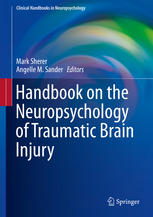

Most ebook files are in PDF format, so you can easily read them using various software such as Foxit Reader or directly on the Google Chrome browser.
Some ebook files are released by publishers in other formats such as .awz, .mobi, .epub, .fb2, etc. You may need to install specific software to read these formats on mobile/PC, such as Calibre.
Please read the tutorial at this link: https://ebookbell.com/faq
We offer FREE conversion to the popular formats you request; however, this may take some time. Therefore, right after payment, please email us, and we will try to provide the service as quickly as possible.
For some exceptional file formats or broken links (if any), please refrain from opening any disputes. Instead, email us first, and we will try to assist within a maximum of 6 hours.
EbookBell Team

4.1
60 reviewsFrom student athletes to professional football players to military personnel, the experiences of diverse groups are driving clinical and research efforts toward better treatment of traumatic brain injury. And as more is understood about the complexities of the condition, especially in its milder forms, the greater the need for clinical expertise in assessment and intervention.
The Handbook on the Neuropsychology of Traumatic Brain Injury collects and synthesizes the latest thinking on the condition in its variety of cognitive and behavioral presentations, matched by a variety of clinical responses. Acknowledging the continuum of injury and the multi-stage nature of recovery, expert contributors review salient research data and offer clinical guidelines for the neuropsychologist working with TBI patients, detailing key areas of impairment, brief and comprehensive assessment methods and proven rehabilitation strategies. Taken together, these chapters provide a framework for best serving a wide range of TBI patients (including children, elders, and patients in multidisciplinary settings) and model treatment that is evidence-based and relevant. A sample of the topics featured in the Handbook:
Expanding professional knowledge on a topic that continues to grow in importance, the Handbook on the Neuropsychology of Traumatic Brain Injury is a premier resource, not only for neuropsychologists but also for other professionals in cognitive care, and trainees entering the field.